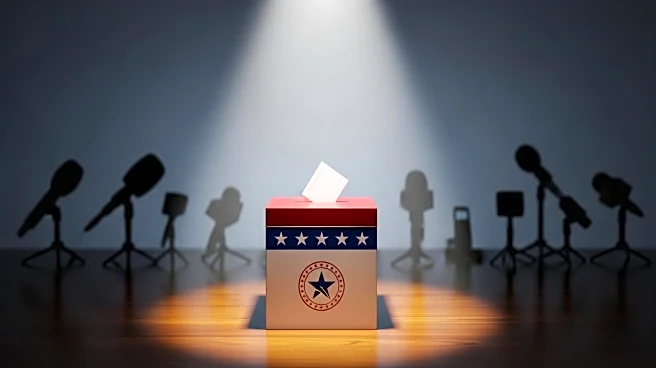What is the story about?
What's Happening?
Congressional correspondents have returned to Washington, D.C., amidst ongoing partisan debates, including those surrounding Jeffrey Epstein and potential government shutdowns. A recent discussion highlighted the noticeable absence of young Republicans pursuing congressional seats. Political correspondent Sarah McCammon, congressional correspondent Claudia Grisales, and political reporter Elena Moore explored this issue in a podcast episode. The conversation delved into the challenges and dynamics that may be deterring younger members of the Republican Party from entering congressional races, despite the party's need for fresh perspectives and leadership.
Why It's Important?
The lack of young Republicans running for Congress could have significant implications for the party's future. As the political landscape evolves, the infusion of younger voices is crucial for addressing contemporary issues and connecting with younger voters. This trend may impact the party's ability to adapt to changing demographics and societal shifts. The absence of youthful candidates could also affect the party's long-term strategy and policy development, potentially leading to a disconnect with emerging voter bases and hindering efforts to rejuvenate its image.
What's Next?
The Republican Party may need to reassess its approach to candidate recruitment and support to encourage more young members to run for office. This could involve addressing barriers such as financial constraints, mentorship opportunities, and creating a more inclusive environment that values diverse perspectives. Political leaders and strategists might focus on initiatives that engage younger generations and foster leadership development within the party. The outcome of these efforts could shape the party's trajectory and influence its competitiveness in future elections.
Beyond the Headlines
The reluctance of young Republicans to run for Congress may reflect broader cultural and generational shifts within the party. This situation could prompt discussions about the party's identity and its alignment with the values and priorities of younger Americans. Additionally, it raises questions about the effectiveness of current political structures in accommodating new ideas and fostering innovation. The long-term impact of this trend could lead to significant changes in party dynamics and influence the political discourse in the United States.


















